You searched for: Concentration camps
<< Previous | Displaying results 951-975 of 1116 for "Concentration camps" | Next >>
-
Tania Marcus
ID CardTania grew up in Smorgonie, a Polish town where Jews constituted more than half of the population. Her father was a successful businessman who sold farming equipment and purchased flax for export. Her grandfather, an affluent merchant, traveled frequently and brought the first truck to Smorgonie. The Marcuses took part in the town's vibrant Jewish culture, attended the theater, and hosted discussions about art in their home. 1933–39: On September 1, 1939, German troops invaded Poland, triggering World…
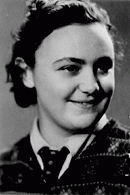
-
Bella Jakubowicz
ID CardBella was the oldest of four children born to a Jewish family in the small city of Sosnowiec, in Polish Silesia. Her father owned a successful knitting factory. In 1938, when she was 12, Bella began attending a private secondary school. 1933-39: When Bella's family returned from vacation in late August 1939, there were rumors of war. Her mother tried to stock up on food but the stores were already out of staples. The Germans took Sosnowiec on September 4; two weeks later they interned all the Jewish men…
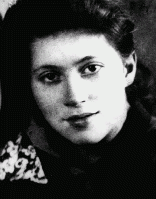
-
Karl-Heinz Kusserow
ID CardKarl-Heinz was born during World War I, while his father was in the German army. After the war, his Lutheran parents became Jehovah's Witnesses and gave their children daily Bible lessons. When Karl-Heinz was 13, the family moved to the rustic Westphalian town of Bad Lippspringe. Their home became the headquarters of a new Jehovah's Witness congregation. 1933-39: Because of the Jehovah's Witnesses' missionary work, and because their sole allegiance was to God and His commandments, their activities were…
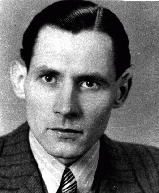
-
Fischel (Philip) Goldstein
ID CardFischel was the youngest of five children. He came from a Jewish family of artisans; his father was a tailor, his uncles were furriers, and his sister was a dressmaker. Fischel started his education at a Jewish parochial school at age 3, where he studied Hebrew and Yiddish. He continued his education at Jewish private schools until age 10, when he entered Polish public schools. 1933-39: After graduating from the Polish public school system at age 14, Fischel started an apprenticeship in his father's…
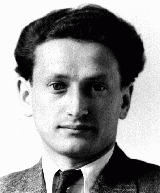
-
Rena Gani
ID CardRena and her family were Romaniot Jews, a group that had lived in Greek cities and the Balkans for more than 1,100 years. The town of Preveza, located on the Ionian seashore, had 300 Jews. Rena's father had a small textile shop and her mother stayed at home to care for Rena, her sister and her three brothers. 1933-39: When Rena's family moved to the nearby town of Ioannina, she completed Jewish primary school there. The school was sponsored by the French organization Alliance Israelite Universelle, and…
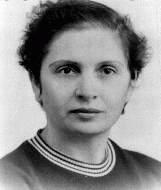
-
Nikola Mrvos
ID CardThe oldest of five children, Nikola was born in a small village in the Croatian part of Yugoslavia. Like his parents, Nikola was baptized in the Serbian Orthodox faith. After receiving his medical degree from Prague University, he married, and in 1912 moved with his wife to Serbia. During World War I he served in the Serbian army, and then settled in Novi Sad where he co-owned a medical clinic. 1933-39: Nikola and his wife raised three children in Novi Sad. Then difficult times brought on by the 1930s…
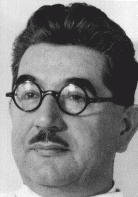
-
Hanandel Drobiarz
ID CardHanandel was raised with his three brothers and sisters in the town of Kozlow, where his family sold grain and livestock. The family was religious, and they observed the Sabbath and all Jewish holidays and dietary laws. When Hanandel was 5, he began studying Hebrew, the Bible, prayers, and Jewish history. 1933-39: At age 14 Hanandel was apprenticed to his uncle in Sosnowiec as a tinsmith. He worked for his uncle during the day and attended trade school at night. When he graduated from trade school he…
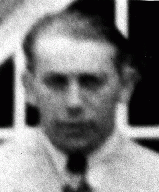
-
Walther Hamann
ID CardWalther was born in the state of Thuringia in east central Germany. Though his parents were Lutheran, Walther became a Jehovah's Witness in 1923. After becoming a master baker and confectioner in 1924, Walther worked in various coffeehouses in Plauen, Magdeburg and Duesseldorf. In 1928 he graduated from a professional school. He married and had two sons. 1933-39: In 1933 Walther became a pastry-making manager at the Cafe Weitz on Duesseldorf's Koenigsallee. The Gestapo arrested him at the cafe in 1937…
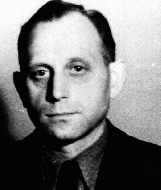
-
Eva Brigitte Marum
ID CardEva Brigitte was the youngest of three children born to German-Jewish parents in the capital of Baden, a state along the Rhine River in southwestern Germany. Known as Brigitte by her friends and classmates, and as "Brix" by her family, she grew up in a secular household and attended public schools. Her father was a local Social Democratic party leader. 1933-39: In 1933 the Nazis came to the Marum's house and arrested Eva's father because he was an active anti-Nazi. Two months later she suddenly saw him…
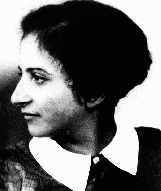
-
Inge Auerbacher
ID CardInge was the only child of Berthold and Regina Auerbacher, religious Jews living in Kippenheim, a village in southwestern Germany near the Black Forest. Her father was a textile merchant. The family lived in a large house with 17 rooms and had servants to help with the housework. 1933-39: On November 10, 1938, hoodlums threw rocks and broke all the windows of Inge's home. That same day police arrested her father and grandfather. Inge, her mother and grandmother managed to hide in a shed until it was…
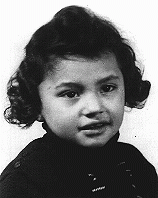
-
Yakob Braun
ID CardYakob's town of Wloclawek was located on the Vistula River. He and his brother Abraham studied Hebrew and German in addition to Polish. Yakob met his bride Machla through a Jewish matchmaker, and after marrying they lived in Lodz. Yakob ran the family textile business until 1938, when he invested in real estate. He became landlord of an apartment building, where he and his family also lived. 1933-39: When the Nazis expelled the Polish Jews from Germany in 1938, Yakob established a relief organization in…
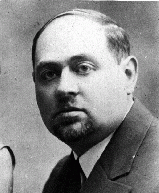
-
Yona Wygocka Dickmann
ID CardYona was the eldest of four children in a working-class Jewish family. The family lived in the Jewish section of Pabianice. Yona's father sold merchandise to Polish stores. When the Poles could not pay him for his goods, they would give him food for his family. It was a difficult life in Pabianice, but Yona's family was very close, and many relatives lived nearby. 1933-39: After war began in September 1939, the Germans set up a ghetto in Pabianice in Yona's neighborhood. Yona and all her extended family…
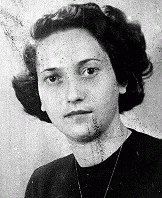
-
Karl Stojka
ID CardKarl was the fourth of six children born to Roman Catholic parents in the village of Wampersdorf in eastern Austria. The Stojkas belonged to a tribe of Roma ("Gypsies") called the Lowara Roma, who made their living as itinerant horse traders. They lived in a traveling family wagon, and spent winters in Austria's capital of Vienna. Karl's ancestors had lived in Austria for more than 200 years. 1933-39: Karl grew up used to freedom, travel and hard work. In March 1938 his family's wagon was parked for the…
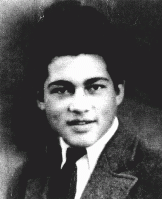
-
Johann (Hansi) Stojka
ID CardHansi, as he was called by family and friends, was the third of six children born to Roma ("Gypsy") parents who were Roman Catholic. The family wagon traveled with a caravan that spent winters in Vienna, Austria's capital, and summers in the Austrian countryside. The Stojkas belonged to a tribe called the Lowara Roma, who made their living as itinerant horse traders. 1933-39: Hansi grew up used to freedom, travel and hard work. He was 9 years old and their wagon was parked for the winter in a Vienna…
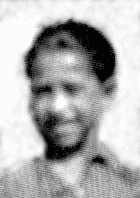
-
Doriane Kurz
ID CardDoriane Kurz’s parents, Klara and Emil Meilech Kurz, settled in Vienna, where her father ran a thriving branch of the family's multinational optical frames business. 1933-39: Doriane was born in Vienna just two years before the Germans annexed Austria in March 1938. Her family fled to the Netherlands soon after the annexation. The Kurz family moved to the town of Maastricht where a branch of the Kurz Brothers' optical frames business was located. Doriane attended nursery school in Maastricht, but the…
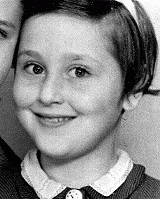
-
Carl Heumann
ID CardCarl was one of nine children born to Jewish parents living in a village near the Belgian border. When Carl was 26, he married Joanna Falkenstein and they settled down in a house across the street from his father's cattle farm. Carl ran a small general store on the first floor of their home. The couple had two daughters, Margot and Lore. 1933-39: Carl has moved his family to the city of Bielefeld, where he is working for a Jewish relief organization. Requests from this area's Jews to leave Germany have…
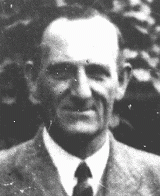
-
Anna Pfeffer
ID CardAnna, affectionately known as Aennchen to her family, was the daughter of non-religious German-Jewish parents. Her father died when she was young and Anna was raised in the town of Bruchsal by her impoverished mother. Anna married a well-to-do, older gentleman in 1905 and moved to the fashionable city of Duesseldorf, where he was a department store manager. By 1933 they had two grown sons. 1933-39: The Pfeffer's comfortable life unraveled after the Nazis came to power. The Nazis arrested Anna's brother…
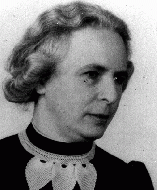
-
Otto-Karl Gruenbaum
ID CardBorn to a Jewish father and a Catholic mother, Otto grew up in a city well known for its musical tradition. The younger of two children, Otto began studying the piano at age 10. After entering the Vienna Conservatory of Music, he gave his first concert at age 14. Encouraged by Maestro Bruno Walter, he hoped to become a conductor and concert pianist. 1933-39: After Germany annexed Austria in March 1938, Otto was kicked out of the Vienna Conservatory. One night, two men ordered him to go with them to a…
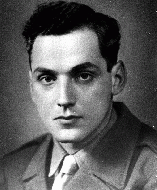
-
Barbara Nemeth Balint
ID CardBarbara was born to a middle-class Jewish family in southeast Hungary. Her father had a store that carried grocery and hardware items. Barbara had a sister named Margit and a brother named Desider. In 1928 Barbara married Istvan Geroe and moved to the town of Torokszentmiklos. Her son, Janos, was born there a year later. 1933-39: In 1933 Barbara divorced and returned with 3-year-old Janos to her parents' home in the town of Szentes. She helped run her parents' store, which was located on a busy inter-city…
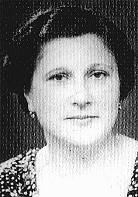
-
Shaye Rothkopf
ID CardShaye's town in the province of Lodz had a Jewish community that comprised almost one-third of the town's population. Shaye was very young when his father died during World War I. Afterwards, his grandparents helped to support his family. When Shaye was a teenager, his mother died. He and his siblings then lived with their grandparents. 1933-39: Swimming was Shaye's favorite pastime and he'd go with his friends to the banks of the Vistula River on every possible occasion. He worked in Lodz for a company…
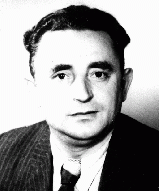
-
Jehuda Gerszonowicz
ID CardThe third of eight children, Jehuda was born in the predominantly Jewish town of Wodzislaw, about 45 miles north of Krakow. Jehuda's father was a mechanic and locksmith, and had trained Jehuda and his brothers in the trade. Jehuda eventually opened his own shop in the nearby town of Miechow. He had eight children--five sons and three daughters--by two marriages. 1933-39: All this summer Jehuda has been glued to the radio, as the number of skirmishes between the German and Polish border guards have…
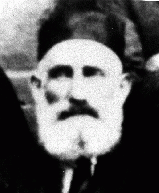
-
Mieczyslaw (Marek) Madejski
ID CardMieczyslaw was the eldest of three sons born to well-to-do Roman Catholic parents in Poland's capital of Warsaw. His father was a real estate developer and his mother was a housewife. Mieczyslaw, or Mieteck as he was nicknamed, began attending public elementary school in 1930 when he was 7 years old. 1933-39: Mieczyslaw's father urged him to study either German or Russian because he thought it was likely that there would be a German or Soviet invasion. Germany invaded Poland on September 1, 1939. During…
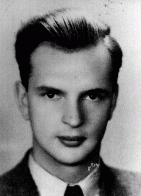
-
Stevo Jugovic
ID CardStevo, who was Serbian Orthodox, was a blacksmith, gunsmith and farmer in the village of Pucari. When he was 20, he went to live in the United States in Minnesota for four years. In 1912 he returned to Pucari, but when his wife and two of his sons died from influenza, he left again for America. In 1923 he returned to Pucari, where he remarried and raised four more children. 1933-39: Stevo had saved some money in the United States, and became one of the wealthiest farmers in his village. He acquired…
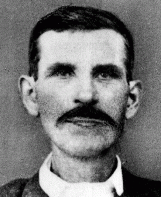
-
Letter home from an American soldier about the end of World War II in Europe
DocumentRudolph Daniel Sichel (b. 1915) left Germany in 1934 for England and then immigrated to the United States in 1936. His father, who had remained in Germany, was arrested during Kristallnacht, sent to Buchenwald for a couple of months, forced to sell his store at a loss, and immigrated to the United States with Rudolph's mother shortly after. Sichel joined the US Army in 1943, attending courses at the Military Intelligence Training Center at Camp Ritchie, MD. He landed on Utah Beach in July 1944 and was…
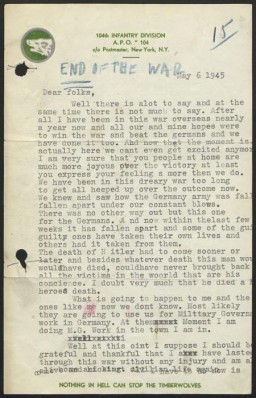
-
Dorotka (Dora) Goldstein Roth describes conditions in the Vilna ghetto
Oral HistoryAfter the Germans invaded Poland in 1939, Dora's family fled to Vilna, Lithuania. When the Germans occupied Vilna, Dora's father was shot and the rest of the family was confined in the Vilna ghetto. Dora, her sister, and her mother were deported to the Kaiserwald camp in Latvia and then to the Stutthof concentration camp near Danzig. Her mother and sister perished in Stutthof. Dora herself was shot immediately before liberation, but she survived.

